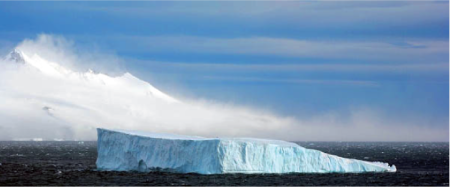| SEARCH |
-

Nov 17, 2015
Reflections on a three-decade legacy
The International Geosphere-Biosphere Programme (IGBP) will come to a close at t...
-
Nov 17, 2015
Use of and access to content on this website
Text and images produced by IGBP in house are free to use with appropriate credi...
-
Nov 12, 2015
Bella Gaia performance and panel discussion to mark IGBP's closure
A musical performance by Bella Gaia will celebrate the achievements and legacy o...
-

Towards Future Earth:
evolution or revolution?
During its three decades of existence, the International Geosphere-Biosphere Pro...
-
A personal note on IGBP and the social sciences
Humans are an integral component of the Earth system as conceptualised by IGBP. João Morais recalls key milestones in IGBP’s engagement with the social sciences and offers some words of advice for Future Earth.
-
IGBP and Earth observation:
a co-evolution
The iconic images of Earth beamed back by the earliest spacecraft helped to galvanise interest in our planet’s environment. The subsequent evolution and development of satellites for Earth observation has been intricately linked with that of IGBP and other global-change research programmes, write Jack Kaye and Cat Downy .
-
Deltas at risk
Around 500 million people worldwide live on deltas, but many of the world's deltas are sinking due ...
-
Climate change: the state of the science
A new data visualization released on the first day of the plenary negotiations at the UNFCCC’s clima...
-
Climate Change:
the State of the Science
Videos now online from the Stockholm public forum to mark the launch of the IPCC's climate report, 2...
The Climate of Past Interglacials
Sirocko F, Claussen M, Litt T and Sanchez-Goni M F (eds)

Historically, climate fluctuations, such as the Little Ice Age, show that interglacial climate chage in not entirely stable, but responds to even subtle changes in radiative forcing. Through research, it has been made clear that even an abrupt change of climate within years is not just a theoretical possibility but has in fact happened in the prehistoric past. It is therefore clear that in principal it could happen again. Human civilaization has exploded under the mild and relatively stable climatic conditions that have prevailed over the last 11,000 years. This book focuses on revisiting the past and to study climate and environment in a suite of experiments where boundary conditions are similar but not identical to today so we can learn about the climate-environment system, its sensitivity, thresholds and feedback. The palaeoclimate community holds an important key to scientific information on climate change that provides a basis for appropriate adaptation and mitigation strategies. The authors of this book have taken up this challenge and summarize their results in this special volume. It presents state-of-the-art science on new reconstructions from all spheres of the Earth System and on their synthesis, on methodological advances, and on the current ability of numerical models to simulate low and high frequency changes of climate, environment, and chemical cycling related to interglacials.

IGBP closed at the end of 2015. This website is no longer updated.
-

Global Change Magazine No. 84
This final issue of the magazine takes stock of IGBP’s scientific and institutional accomplishments as well as its contributions to policy and capacity building. It features interviews of several past...
-

Global Change Magazine No. 83
This issue features a special section on carbon. You can read about peak greenhouse-gas emissions in China, the mitigation of black carbon emissions and the effect of the 2010-2011 La Niña event on gl...
-
INTERGOVERNMENTAL PANEL ON CLIMATE CHANGE:
How green is my future?
UN panel foresees big growth in renewable energy, but policies will dictate just how big.
-
UK:
'The Anthropocene: a new epoch of geological time?'
Royal Society, Philosphical Transactions A




















